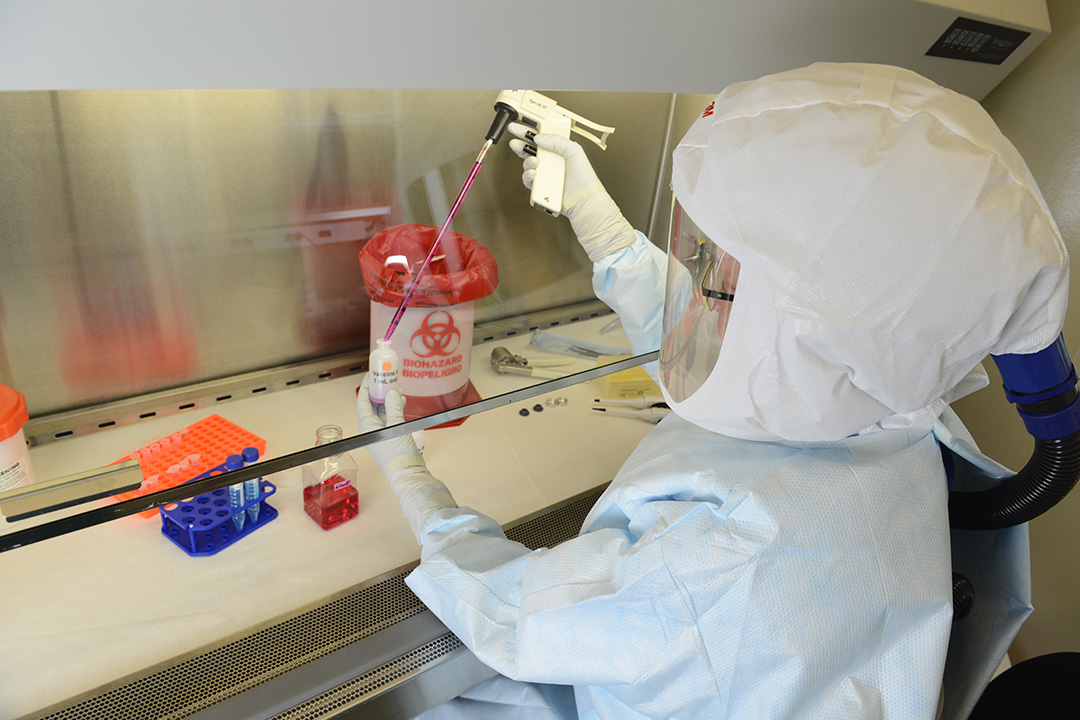
Canada’s Global Nexus and VIDO join forces to combat COVID–19
Two Canadian powerhouses in infectious disease research have joined forces in the fight against COVID–19, leading Canada’s response and preparedness for future pandemics.
McMaster University and the University of Saskatchewan (USask) have enhanced their long-standing collaboration in infectious disease research, signing a partnership agreement that brings the two institutions together to accelerate vaccine and drug development, human and animal clinical trials and create new diagnostic tools.
The partnership will leverage the extensive research facilities and industry partnerships at USask’s Vaccine and Infectious Disease Organization (VIDO) and Canada’s Global Nexus for Pandemics and Biological Threats, based at McMaster.
Both institutions are among the only Canadian centres with the specialized containment facilities, equipment and research expertise necessary to quickly isolate pathogens including SARS-CoV-2 (the virus that causes COVID-19), ramp up vaccine discovery and manufacturing, and identify new and emerging threats including variants of viruses such as COVID-19.
“The complex challenges of pandemics will only be solved by this type of partnership,” said Gerry Wright, lead, Canada’s Global Nexus for Pandemics and Biological Threats. “Canada’s Global Nexus and VIDO’s research strengths, which span human and animal health, are deep and complementary and by bringing together our collective expertise, global networks and industry partnerships, we have the strength and track record to protect Canadians from COVID-19 and future pandemics.”
“Collaboration is essential to rapidly respond to emerging infectious diseases,” said VIDO Director and CEO Dr. Volker Gerdts. “As a Centre for Pandemic Research, VIDO is glad to collaborate with Canada’s Global Nexus to leverage our complementary scientific expertise and infrastructure to help prepare Canada for the next pandemic.”
The agreement establishes a formal scientific exchange between USask and McMaster in infectious disease research, vaccine and drug development, and evidence-based information to guide decision makers and new policies. It will also create training opportunities for postdoctoral fellows and graduate students.
Specific areas of collaboration include:
- developing and testing new vaccines and drug candidates
- production of vaccines and clinical trials for humans and animals
- development of new diagnostics and other ways of identifying known and emerging infectious agents
- development of animal models for emerging infectious diseases
This collaboration builds on existing partnerships internationally and across the country with key public health organizations such as the Public Health Agency of Canada, the National Research Council and the Canadian Food Inspection Agency as well as infectious disease research networks like the Canadian Antimicrobial Innovation Coalition. Both institutions have also partnered with numerous pharmaceutical and biotechnology companies to advance COVID-19 solutions.

